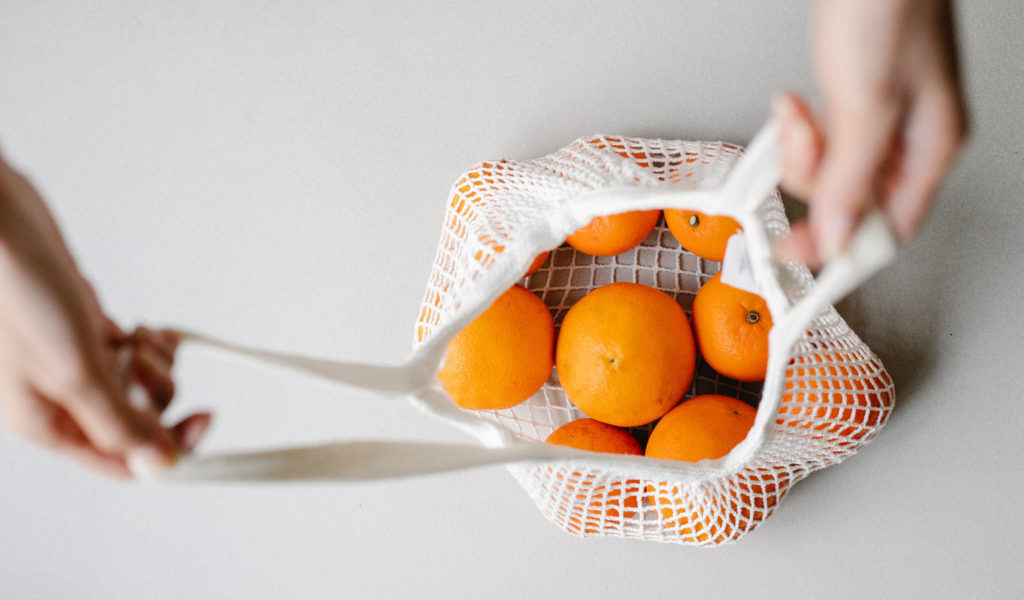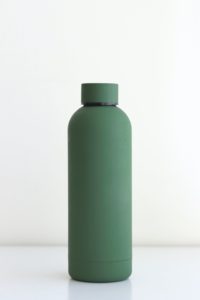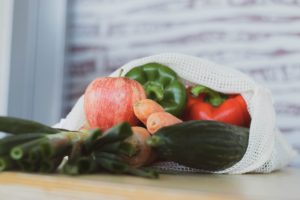 If the city your company operates in doesn’t already have some kind of plastic ban in effect, there’s a good chance that it soon will. What’s more, the plastic bans that are in place are likely to become far stricter and further reaching in the years to come. With so many aspects of everyday lives tied to plastics – from grocery bags to drinking straws, water bottles and coffee cups – what alternatives do businesses have after these bans come into effect and continue to evolve?
If the city your company operates in doesn’t already have some kind of plastic ban in effect, there’s a good chance that it soon will. What’s more, the plastic bans that are in place are likely to become far stricter and further reaching in the years to come. With so many aspects of everyday lives tied to plastics – from grocery bags to drinking straws, water bottles and coffee cups – what alternatives do businesses have after these bans come into effect and continue to evolve?
There are few routes that companies can take to disentangle themselves from plastic dependency with various plastic alternatives for common items in businesses today. These alternatives generally fall into one of three categories: reusable items, biodegradable materials, or substitute materials.
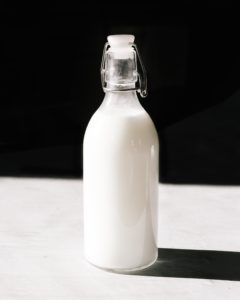 1. Reusable alternatives to plastic
1. Reusable alternatives to plastic
Many of the plastic products that will likely be prohibited under a single-use plastic ban already have reusable alternatives. These plastic alternatives have, in some cases, been used for decades (or longer) before plastics became the norm, so they are tried and tested for businesses of any size. Other solutions are a little more modern, but still offer viable alternatives to plastics.
A classic example of this is milk. Once delivered in reusable glass bottles, which were washed and sent back time after time, people eventually switched to plastic (or plastic-lined) cartons. Now, businesses that both manufacture and retail milk are switching back as an alternative to plastic.
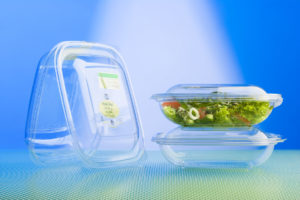
Source: ecomena.org
2. Biodegradable plastic alternatives
Biodegradable plastic alternatives have become more popular in recent years, with everything from vegetable cellulose to fish scales being developed as possibilities. These bioplastics can be used for many applications, but are especially popular for food and drink containers. They can be a single-use plastic alternative but still result in significant waste, even if that’s not plastic waste.
These plastic alternatives do, however, come with their own set of issues. For example, one of the most notable biodegradable plastic alternatives is Polylactic acid (PLA), which is hard to distinguish from normal plastic. It can easily make its way into recycling streams, which will result in it going to landfill or worse, ruin a batch of otherwise recyclable plastic. Additionally, it can only be composted in commercial facilities, not at home, and even then, results in lower-quality compost after taking far longer than traditional food and yard waste to break down.
In addition to biodegradables that imitate plastic, there are also plenty of biodegradable replacements that look wildly different. For example, there are banana leaves being used as alternatives for plastic plates and takeaway containers as well as pasta and rice being used as plastic straw alternatives. These mitigate some of the issues of biodegradable plastic, but still fall far short of their reusable counterparts.

Source: shop.zerowaste.com
3. Substitute materials
Along with biodegradable alternatives, there are plenty of other options that companies are exploring as replacements for plastics in their products. Paper and card have proved especially popular, with numerous household and beauty products now contained in cardboard tubes. Similarly, paper bags are popular alternatives for plastic bags and are already in use across the US.
However, just like biodegradable plastics, these alternatives have their own downsides. For example, replacing plastic bags with paper in the US would result in the equivalent of 14 million trees being cut down each year. Moreover, they have a higher production cost and still only have a recovery rate of around 50%.
Common plastic alternatives for businesses
With these benefits and shortcomings in mind, let’s take a look at some specific items that businesses facing a plastic ban might need to replace and the alternatives that are available to them.
Alternatives to plastic water bottles
Plastic water bottles are a major problem, with over 60 million trashed in the US every single day, but there is a relatively simple solution—reusable bottles. It’s a small step that many people have taken already, and some 60% of US adults are now sticking with reusable drinks containers according to some studies. However, as a business, this isn’t always a viable option.
On the retail side, if your company sells or gives away plastic water bottles (such as a hotel), then reusable bottles are not always feasible—although refilling options should still be offered. Most customers would probably be happy with a glass of water, but again, this isn’t always an option. Therefore, alternatives such as glass bottles should be sought to stock shelves.
A shift to glass bottles for many products is already being seen, and it’s projected to increase in the coming years (CAGR of 5.2% from 2021 to 2030). It’s directly tied to increased demand for recyclable alternatives, so businesses should see a broader selection of stock in the very near future.
In addition to glass, metal and paper are also being lauded as potential alternatives to plastic water bottles. One company, called Liquid Death, has been making a splash in recent months with the sale of canned water, with packaging made of aluminum which, unlike plastic, is infinitely recyclable.
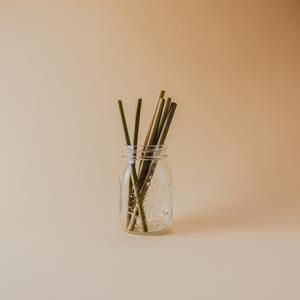
Source: shop.zerowaste.com
Plastic straw alternatives
One of the most vilified single-use plastics in recent years, straws, now have plenty of reusable alternatives. Some popular alternatives include metal straws and reusable bamboo straws.
As with bottles, reusable straws may not be feasible for some businesses, but there are still alternatives. Paper straws are one of the most common substitutions and have gained a lot of traction recently, with some of the world’s largest multinationals, such as Nestlé, making the switch on their products.
There are also some more novel alternatives, such as pasta straws from companies like Stroodles. These biodegradable (and edible) alternatives to plastic straws allow businesses to offer customers a sustainable straw option, and they are quickly being adopted by restaurants and bars in the US.
These same companies are now also offering similar food-based alternatives to plastic utensils, which could prove valuable to businesses offering takeaway or delivery services.
Alternatives to plastic bags
Plastic bags have been the target of many existing bans, so this is a switch that consumers are used to. When it comes to reusable alternatives, cotton or canvas tote bags are probably the most common and are now sold by many businesses.
While heavy-duty plastic “bags for life” have become popular in recent years, and are still allowed under certain bans, there have been concerns that they actually increase the plastic footprint of retailers. As such, it’s worth seeking out more sustainable alternatives where possible.
If a business wishes to continue to offer something to shoppers in addition to reusable bags, there are a number of alternatives. Biodegradable bags are a popular choice, but have shortcomings, as mentioned earlier. Similarly, paper bags are still common in many shops and are often offered in place of plastic but, again, have their own challenge as mentioned.
Alternatives to plastic food packaging
Another common source of plastic waste is food and drinks packaging, and for any businesses that offer takeaway or delivery, a ban could mean a major shift in operations. Notably, billions of coffee cups are thrown away every year in the US, and these are almost all coated with plastic and paired with a plastic lid. Simple, reusable alternatives have been available for a while and businesses can encourage their use through programs such as discounts or loyalty programs for customers who use their own cups.

Source: shop.zerowaste.com
Similarly, takeaway single-use plastic food packaging is a particularly large waste stream that also has reusable alternatives. The use of reusable food containers is far less widespread than water bottles and coffee cups, so businesses will likely have to look for other options. This is especially true since the onset of the COVID-19 pandemic, with some establishments unwilling or unable to refill containers for health and safety reasons.
Therefore, many businesses will be looking towards non-reusable alternatives to plastic food packaging. Biodegradable plastics are popular in since they mimic the benefits of traditional plastics, and there are ongoing innovations in bio-plastics to try to make them more stable and recyclable.
Lots of restaurants and cafes offering takeaway services are also switching to paper-like packaging, whether made from wood or more sustainable sources. There are many options on the market, so any company facing a plastic ban should be able to find a greener alternative to plastic food packaging at their business.
Saying “no” to packaging
If a plastic ban comes into effect, many people may soon realize that the simplest alternative is just saying “no” to much of the packaging they currently take for granted. In some scenarios, this can be simple, such as straws at a bar. In other cases, such as a bag of beans or pasta at the grocery store, it might not be so clear how to go package-free. That said, it is getting simpler with the rise of zero waste stores which offer packaging-free products and goods in bulk.
In addition to looking for plastic alternatives, businesses should also be looking at ways to eliminate the need for these alternatives. They should be looking at ways to cut back waste and reduce their footprint, which will put them ahead of any bans coming into effect as well as providing numerous other benefits such as better brand image and potential financial savings
What is the best plastic alternative?
The most useful way to look at the best alternatives to plastic is through the lens of the zero waste hierarchy, which puts reduction above reuse, and reuse above recycling. One will find, the best alternative is saying “no” to wasteful items—whether that’s pasta straws or pointless paper packaging.
The second-best option is to choose reusable alternatives to plastic. Start small by offering metal or glass alternatives to plastic water bottles, then begin to introduce this same mentality to other areas of your business.
Finally, if reduction and reuse aren’t possible, start looking towards recyclable, compostable, or otherwise recoverable plastic alternatives. This includes biodegradable plastic alternatives such as PLA products.
At the end of the day, businesses will find a way to carry on under any plastic ban, whether that means looking back to the way things were done before plastics or looking ahead to new alternatives. Many plastic alternatives already exist and as more people say no to single-use plastics, there are only going to be more options available.
For more information on plastic alternatives and how your business can prepare for plastic bans, contact one of our TRUE advisors today. Additionally, subscribe to the RTS blog for the latest information on sustainability and the circular economy.

